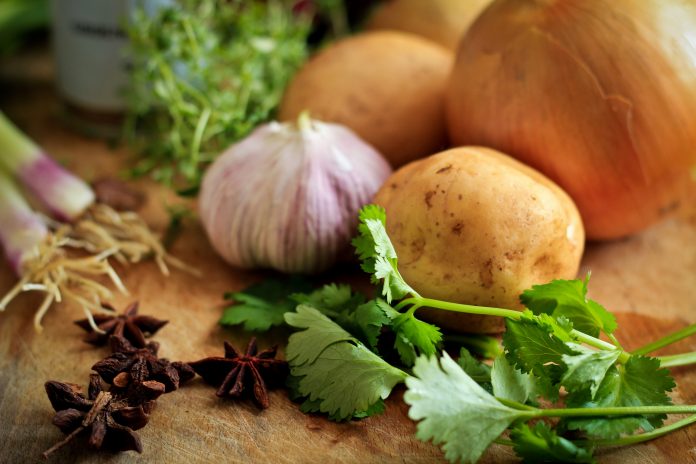As we age, appetite loss is a common problem. It can start as early as your sixties and for many older adults and seniors the loss of nutrient rich foods can affect their health. There are many reasons for loss of appetite: side effects of medication, mouth infections or gum disease, loss of sense of smell or underlying diseases and conditions.
This is why as we get older we should concentrate more on eating nutrient dense foods. These are foods which may not add a lot of calories but they still provide a lot of nutrients for the amount that you are eating.
Not all food is created equal but those on the list below are among the most nutrient dense available:
- Garlic. Long used to add flavour to many dishes, garlic is also known to lower blood pressure and keep your cholesterol in check. It is high in many vitamins and eaten raw it also has antibacterial and antifungal properties. It has been used for centuries to fight disease.
- Potatoes. Something you may not have known is that one single potato is high in potassium, magnesium, iron, copper and manganese. It also contains vitamin C and most B vitamins. Long given a bad rap, people have been known to exist on potatoes alone for long periods of time.
- Egg yolks. Also demonized because of high cholesterol, egg yolks are one of the most nutritious foods you can eat. Put aside the myths because eating eggs will not affect your cholesterol. Besides being high in vitamins and minerals, eggs provide lutein, much needed for your eyes as you age.
Some other extremely nutrient dense foods include liver, blueberries and seaweed. Fruit and vegetables bought at local markets and farms provide more bang for your buck.Mass produced crops as well as long transportation times have led to loss of nutrients in our food. Choose wisely if you are one of those who is dealing with appetite loss. Try to make your meals as appealing as possible while packing them with as many vitamins as you can.






















